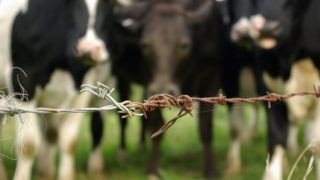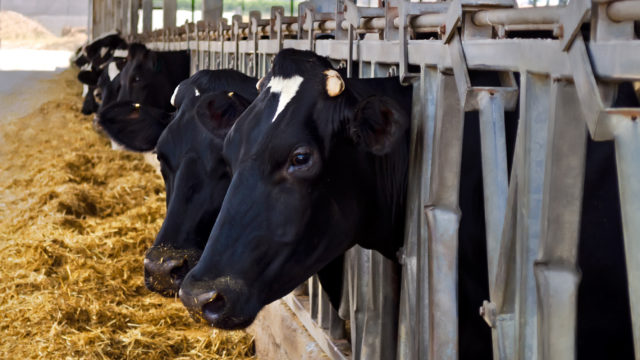
Animal Legal Defense Fund Urges Massachusetts Court of Appeals to Let Climate Change Lawsuit Proceed
Today, the Animal Legal Defense Fund submitted a friend of the court brief on behalf of highly enterprising Harvard students, including several at Harvard Law School, in their bid to compel the University to divest from fossil fuels. The Suffolk County trial court dismissed the lawsuit in March on the basis that, in Massachusetts, only the Attorney General can halt the mismanagement of charitable assets. It did so despite the fact that the Attorney General (an elected official) has not enforced and, for obvious political reasons, likely never will enforce Harvard’s charitable mandate.
Among other things, the students argued compellingly that Harvard’s investment in fossil fuels fails to fulfill the University’s founding mandate of providing transformative educational opportunities to both current and future generations, since climate change will eventually put Harvard entirely underwater. According to the New York Times, in as little as 100 years sea level rise will cause the Charles River to flood much of Cambridge. But even the certain annihilation of Harvard’s campus could not overcome the legal hurdle that “standing” (that is, the right to sue) so often presents to would-be protectors of animals and the environment.
The Animal Legal Defense Fund knows all too well how often state and federal courts close their doors to those who seek justice for animals and ecosystems. For this reason the Animal Legal Defense Fund offered itself as a friend of the court, providing its unique perspective on why the court should permit the students to bring their lawsuit. The Animal Legal Defense Fund argues in its brief that in the face of the imminent and irreversible harm that climate change represents, combined with the unique interests that Harvard students bring to enforce their own University’s charitable mandate, the court should expand its narrow view of standing and allow the suit to proceed.
The Animal Legal Defense Fund’s brief argues moreover that these students should be permitted to sue not only on their own behalf but on behalf of the future generations whom climate change will irreparably harm, since future generations—exactly like nonhuman animals—can neither sue on their own behalf nor participate in the political process, rendering them enormously vulnerable.
The Animal Legal Defense Fund’s amicus brief in the Harvard divestment litigation is another step in our work at the intersection of animal protection and environmental justice, including last year’s Animal Law Conference, devoted chiefly to shared animal-environmental concerns, and our groundbreaking petition before the California Air Resources Board, to regulate greenhouse gas emissions from animal agriculture. Put simply, the Animal Legal Defense Fund recognizes that if we destroy our planet we will hardly have succeeded in protecting animals.
The Harvard divestment plaintiffs cite in their complaint the Preamble to the federal Constitution, which makes clear that the Framers sought to “secure the blessings of liberty” not only for themselves but for those who would follow after—in their words, “to ourselves and our posterity.” Unless we take seriously our commitments to curb climate change, “our posterity”—including nonhuman animals, who face vastly increased rates of extinction—will inherit from us not blessings but curses.
How We Work
Related
-
New Mega Dairy is an Environmental Catastrophe for Oregon Residents
The Animal Legal Defense Fund, in conjunction with other local and national groups, challenged the state of Oregon’s approval of a water-pollution permit for Lost Valley Farm, a mega dairy.June 27, 2017 News -
World Oceans Day Highlights Lack of Protection for Sea Life
World Oceans Day, June 8th, is a global day to honor, help protect, and conserve the world’s oceans.June 8, 2017 News -
U.S. Withdraw from Paris Accord is an Assault on Animals and the Environment
The Animal Legal Defense Fund is dismayed by the decision to withdraw from the Paris Agreement, the global plan to respond to and mitigate climate change.June 1, 2017 Press Release



